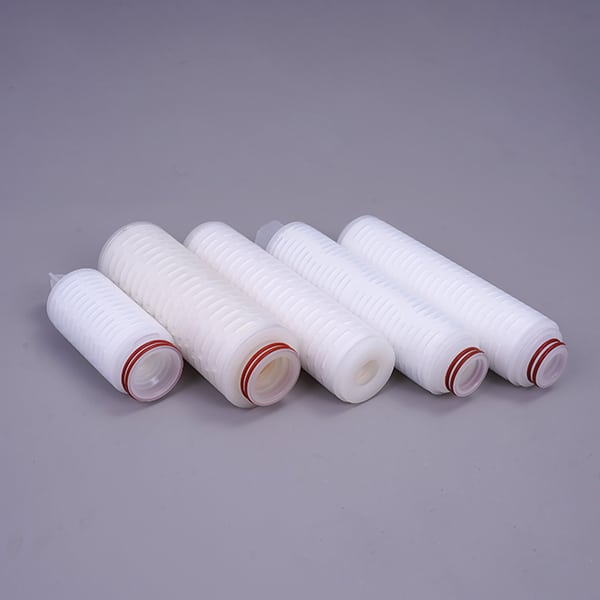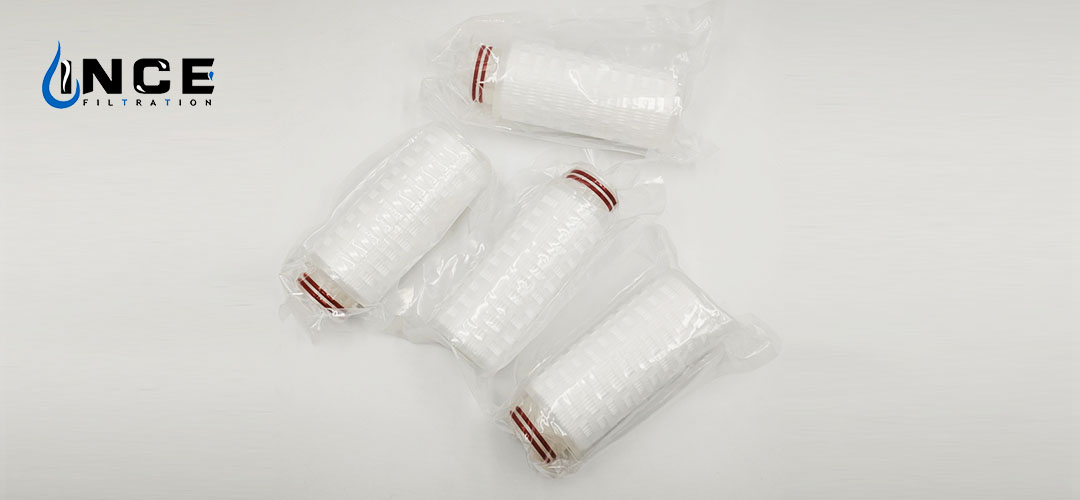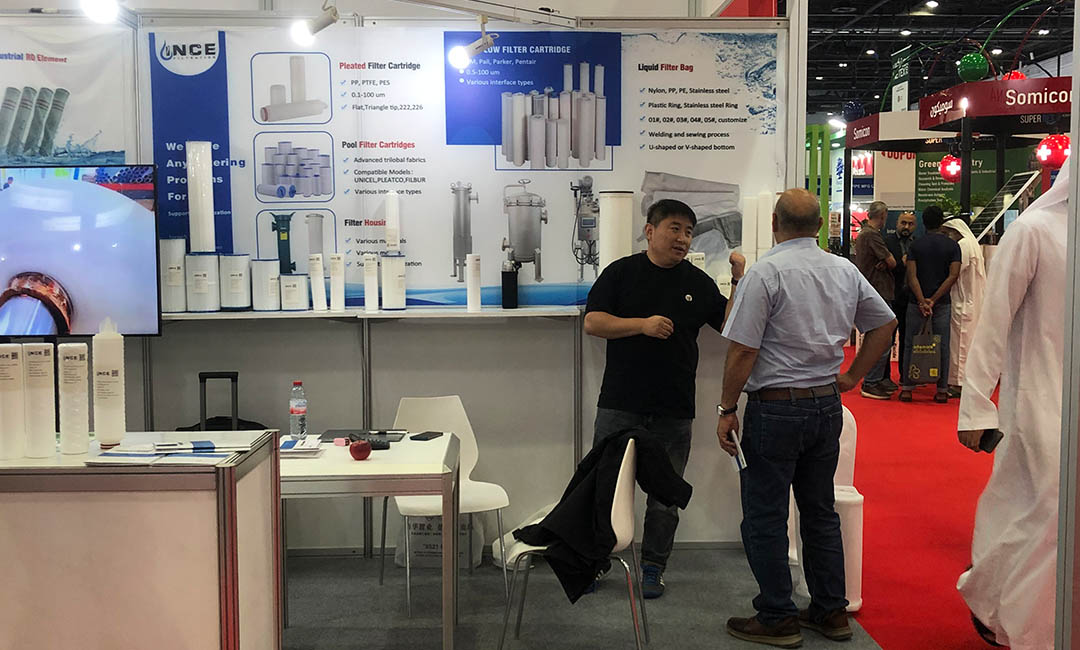
Polypropylene Filters: Long-Lasting Performance in Tough Environments
Benefits of Using Polypropylene Filters in Harsh Conditions
Polypropylene filters are a popular choice for industrial applications due to their durability and long-lasting performance in tough environments. These filters are made from a thermoplastic polymer that is known for its resistance to chemicals, heat, and abrasion. This makes them ideal for use in harsh conditions where other materials may fail.
One of the key benefits of using polypropylene filters is their resistance to a wide range of chemicals. This makes them suitable for filtering corrosive liquids and gases that would quickly degrade other types of filters. Polypropylene filters are also resistant to high temperatures, making them ideal for use in applications where heat is a factor.
In addition to their chemical and heat resistance, polypropylene filters are also highly durable and can withstand rough handling and abrasive materials. This makes them ideal for use in industrial settings where filters are subjected to high levels of wear and tear. Polypropylene filters are also lightweight and easy to install, making them a convenient choice for a wide range of applications.
Another benefit of using polypropylene filters is their low cost compared to other types of filters. Despite their high performance in tough environments, polypropylene filters are relatively inexpensive, making them a cost-effective choice for businesses looking to save money on filtration equipment. This makes them a popular choice for industries such as oil and gas, chemical processing, and wastewater treatment.
Polypropylene filters are also easy to clean and maintain, further reducing the overall cost of ownership. Unlike some other types of filters that require frequent replacement or complex cleaning procedures, polypropylene filters can be easily cleaned with water or a mild detergent. This makes them a convenient choice for businesses looking to minimize downtime and maintenance costs.
In conclusion, polypropylene filters offer a range of benefits for businesses operating in tough environments. Their resistance to chemicals, heat, and abrasion make them ideal for use in industrial settings where other types of filters may fail. Their durability and low cost make them a cost-effective choice for businesses looking to save money on filtration equipment. And their ease of cleaning and maintenance make them a convenient choice for businesses looking to minimize downtime and maintenance costs. Overall, polypropylene filters are a reliable and long-lasting solution for businesses looking to improve their filtration processes in harsh conditions.
How Polypropylene Filters Provide Long-Lasting Performance
Polypropylene filters are a popular choice for many industries due to their long-lasting performance in tough environments. These filters are made from a thermoplastic polymer that is known for its durability and resistance to a wide range of chemicals and temperatures. In this article, we will explore how polypropylene filters provide long-lasting performance and why they are the preferred choice for many applications.
One of the key reasons why polypropylene filters are so durable is their resistance to corrosion. Unlike metal filters, which can rust and degrade over time, polypropylene filters are impervious to most chemicals and will not corrode or deteriorate when exposed to harsh environments. This makes them ideal for use in industries such as chemical processing, oil and gas, and wastewater treatment, where exposure to corrosive substances is common.
In addition to their resistance to corrosion, polypropylene filters are also highly resistant to high temperatures. This makes them suitable for use in applications where the filter may be exposed to extreme heat, such as in industrial ovens or furnaces. The ability of polypropylene filters to withstand high temperatures without deforming or melting ensures that they will continue to perform effectively even in the most demanding conditions.
Another key advantage of polypropylene filters is their ability to filter out a wide range of contaminants. These filters are available in various pore sizes, allowing them to effectively remove particles of different sizes from a fluid stream. This makes them suitable for use in a variety of applications, from filtering out large particles in wastewater treatment plants to removing fine particles in pharmaceutical manufacturing processes.
Polypropylene filters are also easy to clean and maintain, which helps to prolong their lifespan and ensure consistent performance over time. Unlike some other types of filters that require frequent replacement or cleaning, polypropylene filters can be easily cleaned with water or a mild detergent, making them a cost-effective and low-maintenance option for many industries.
In conclusion, polypropylene filters offer long-lasting performance in tough environments due to their resistance to corrosion, high temperatures, and ability to filter out a wide range of contaminants. These filters are a reliable and cost-effective choice for industries that require durable and efficient filtration solutions. Whether you are looking for a filter for a chemical processing plant, an oil and gas facility, or a wastewater treatment plant, polypropylene filters are sure to meet your needs and provide years of reliable service.
Maintenance Tips for Extending the Lifespan of Polypropylene Filters
Polypropylene filters are a popular choice for many industries due to their durability and long-lasting performance in tough environments. These filters are known for their ability to withstand high temperatures, corrosive chemicals, and abrasive materials, making them ideal for a wide range of applications. However, like any filtration system, polypropylene filters require regular maintenance to ensure optimal performance and extend their lifespan.
One of the most important maintenance tips for polypropylene filters is to regularly clean and inspect them. Over time, dirt, debris, and other contaminants can build up on the surface of the filter, reducing its efficiency and potentially causing damage. By regularly cleaning the filter with a mild detergent and water, you can remove these contaminants and ensure that the filter continues to operate at peak performance.
In addition to cleaning, it is also important to inspect the filter for any signs of wear or damage. Cracks, tears, or other imperfections in the filter can compromise its effectiveness and lead to costly repairs or replacements. By regularly inspecting the filter and addressing any issues promptly, you can prevent these problems and extend the lifespan of the filter.

Another important maintenance tip for polypropylene filters is to replace the filter media as needed. Over time, the filter media can become clogged with contaminants, reducing its ability to effectively filter out particles. By replacing the filter media at regular intervals, you can ensure that the filter continues to operate efficiently and effectively.

It is also important to ensure that the filter is properly installed and sealed to prevent leaks and other issues. Improper installation can lead to gaps or other openings that allow contaminants to bypass the filter, reducing its effectiveness. By following the manufacturer’s instructions and ensuring that the filter is properly installed and sealed, you can prevent these problems and extend the lifespan of the filter.

Regularly monitoring the pressure drop across the filter is another important maintenance tip for polypropylene filters. A sudden increase in pressure drop can indicate a clogged filter or other issues that need to be addressed. By monitoring the pressure drop regularly and addressing any issues promptly, you can prevent damage to the filter and ensure that it continues to operate at peak performance.
In conclusion, polypropylene filters are a durable and long-lasting filtration solution for tough environments. By following these maintenance tips, you can extend the lifespan of your polypropylene filter and ensure that it continues to operate efficiently and effectively. Regular cleaning, inspection, and replacement of filter media, along with proper installation and monitoring of pressure drop, are key to maintaining the performance of your polypropylene filter. By taking these steps, you can maximize the lifespan of your filter and avoid costly repairs or replacements in the future.

